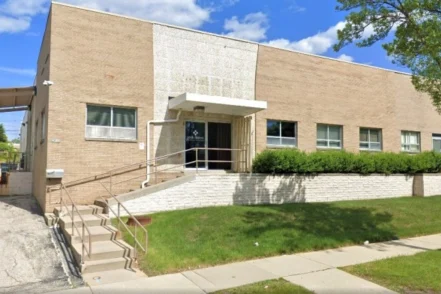A Guide to Veterans’ Drug Rehab & Addiction Treatment

Addiction is no respecter of persons. It’s an enemy that can strike anyone, anywhere, and at any time. It does not discriminate based on age, gender identity, sexual orientation, color, or creed. It is an equal opportunity adversary.
In fact, a 2020 report from the Centers for Disease Control (CDC) estimated that more than 40 million Americans aged 12 had experienced some form of substance use disorder (SUD) within the previous 12 months.
But there’s one population, studies have shown, that may be particularly vulnerable to addiction, a population that also often requires specialized intervention and support to ensure their lasting health and sobriety: military veterans. A recent study by the National Institute on Drug Abuse found that approximately 1 in 10 military veterans had been diagnosed with SUD.
This article examines the reasons why military personnel and veterans may be more vulnerable to addiction, what their unique treatment needs typically are, and how you or someone you love can find the specialized support you need to return to a healthy, happy, dependency-free life.
Why Veterans Are Vulnerable to Addiction
That military personnel and veterans should have to fight not only enemies but also those within feels like the epitome of unfairness. But, for all too many past and present warriors, it’s the reality.
The Trauma of Combat
When you consider the physical, psychological, and emotional costs of war, it’s also all too understandable. Combat veterans face unimaginable stress. Trauma, sadly, is a part of the job description. From the terrors of battle to the loss of brothers and sisters-in-arms, warriors carry deep wounds that few can see and even fewer can truly comprehend.
Both consciously and subconsciously, they have been imprinted with the memory of the threat of their own death or catastrophic injury. Many bear the weight of watching their friends and colleagues fall. Compound this with the terrible responsibility of taking a human life, a responsibility that lies heavily, even when it occurs in the throes of war.
The Sacrifice of Service
Combat veterans, however, are not the only ones to face an elevated risk of addiction. Even if a warrior has never actively engaged on the battlefield of a hot war, they’ve still been called upon to serve and sacrifice to an extent that many civilians would find unendurable. From long deployments away from home and family to the inevitable itinerancy of countless postings across the globe in the course of a single career, military personnel endure chronic stress and deep uncertainty. For the duration of their military tenure, warriors–and their families can never be sure where they will be or what they will be doing in a year, a month, or a week.
The result is a sort of perpetual stress response, with warriors and their families living nearly perpetually in a “fight or flight” state that, over time, can strongly contribute to conflict and estrangement within the family and to anxiety and depression in individuals (1). In the face of family conflict and the chronic stress of service, military personnel may turn to drugs or alcohol for a temporary sense of relief–and thus an addiction is born.
The Body Pays the Price
The psychological and emotional costs of service are, of course, only half the story. There is also the profound physical cost. From the prevalence of combat-related injuries to non-combat-related physical harms, the life of a warrior exacts a physical toll. War wounds and on-the-job hurts alike may be treated with highly addictive opioids and narcotics. Soldiers and veterans may also turn to alcohol or misuse prescription medications to control pain, increase alertness, or deal with sleep disturbances (2, 3).
Dual Diagnosis and Mental Health Concerns
Given all that has been previously discussed, it’s perhaps not surprising that addiction among military personnel and veterans is often complicated by mental illness, a condition referred to as “dual diagnosis” (1). Veterans and active duty military rarely experience SUD alone. The condition is often complicated, exacerbated, and reinforced by one or more co-occurring mental illnesses, such as depression, anxiety disorder, or post-traumatic stress disorder (PTSD) (4).
Dual diagnosis treatment models recognize the reality that SUD and mental health conditions are both interconnected and mutually reinforcing, meaning that sustained sobriety is highly unlikely unless and until the co-occurring mental health issue is also addressed. In other words, when a veteran has a dual diagnosis, treatment is not an either/or matter. True, whole, and lasting recovery comes when you address both conditions simultaneously and that requires the specialized treatment provided by clinicians experienced in dual diagnosis care.
Trauma-Informed Care
Trauma-informed care is a particularly effective approach often used to treat addiction among military personnel and veterans. The strategy recognizes that these clients, whether or not they have experienced active combat, are still likely to have experienced one or more significant traumas as a result of their service, from the deaths of friends and colleagues to family separation and beyond. And, of course, those who have experienced battles have almost inevitably experienced trauma orders of magnitude beyond what most civilians will ever endure.
The experience of trauma, even when it does not lead to a formal diagnosis of post-traumatic stress disorder (PTSD), nevertheless contributes significantly to increased anxiety and depression–and to substance misuse as an unhealthy coping mechanism.
As the name suggests, trauma-informed care in addiction recovery prioritizes the treatment of the underlying trauma as foundational to real and lasting healing. Practitioners draw on a wide array of strategies in trauma-informed care to address the psychological, emotional, cognitive, and even the neurobiological bases of trauma.
Trauma-focused cognitive behavioral therapy (TF-CBT), for example, helps clients recognize, challenge, and restructure how they think about and respond to their trauma, better enabling clients to resist addiction triggers. Eye movement desensitization and reprocessing (EMDR) addresses trauma at the neurophysiological level, potentially inciting beneficial changes in the way the brain remembers and reacts to traumatic memories, thus mitigating the intense emotional responses (fear, panic, despair) that can trigger substance abuse.
Family Support, Veteran Support, and the VA
There’s a saying in addiction recovery that no one gets sick alone and no one recovers alone. This is as true for veterans and military personnel as it is for civilians. A strong support network is essential to lasting recovery, which is why group and family counseling often plays an instrumental role in addiction treatment. Likewise, the friends and relatives of persons experiencing SUD also need support, making family education and family-focused care essential (5).
When it comes to supporting the recovery of military personnel, veterans, and their families, perhaps no organization is better informed, prepared, or equipped than the Veterans Administration (VA). The VA offers a complete continuum of care, from medical detox to sober living and beyond, an immense variety of treatment options, and a full suite of addiction recovery services for active duty personnel, veterans, and families.
Articles About Alcohol & Treatment

A Guide to Veterans’ Drug Rehab & Addiction Treatment
A Guide to Veterans’ Drug Rehab & Addiction Treatment Addiction is no respecter of persons. It’s an enemy that can

How Your Environment Impacts Recovery
How Your Environment Impacts Recovery Learning how your environment impacts recovery is an important lesson to learn. In 2010, I

Do the Foods You Eat in Early Recovery Matter?
Do the Foods You Eat in Early Recovery Matter? You may hear folks in recovery with a bit of time
Top National Treatment Centers
-
 Florida
Florida1 Solution Detox – CLOSED
2901 Broadway Ave West Palm Beach, Florida 33407
Treatment Programs
- Alcohol Rehab
- Opioid Addiction
- Drug Rehab
- +0
-
 California
California10 Acre Ranch
5953 Grand Avenue Riverside, California 92504
Treatment Programs
- Alcohol Rehab
- Dual Diagnosis
- Opioid Addiction
- +4
-
 Wisconsin
Wisconsin10th Street Comprehensive Treatment Center
4800 South 10th Street Milwaukee, Wisconsin 53221
Treatment Programs
- Alcohol Rehab
- Opioid Addiction
- Drug Rehab
- +4
-
 Oklahoma
Oklahoma12 and 12
6333 East Skelly Drive Tulsa, Oklahoma 74135
Treatment Programs
- Alcohol Rehab
- Dual Diagnosis
- Opioid Addiction
- +4